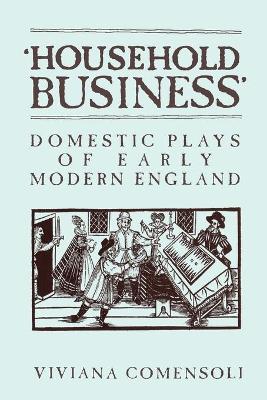Mental & Cultural World of Tudor & Stuart England S.
1 total work
The domestic play flourished on the English popular stage during the late sixteenth and early seventeenth centuries. Its roots were predominantly native, rather than classical, and its mainspring was the staging of domestic conflict amongst English characters from the middle ranks of society. 'Household Business' traces the genre's origins in the cycle plays of medieval England and examines its aesthetic configurations in relation to extra-literary discourses and practices that underwrote Renaissance ideologies of private life. At a time when the orthodox view of the family defined it as the foundation of the social order, a number of domestic dramas took a more critical perspective, stressing the contradictions and struggles that attend marriage and the patriarchal family.
In addition to well-known domestic dramas as A Woman Killed with Kindness, Arden of Feversham, The Witch of Edmonton, and A Yorkshire Tragedy, Viviana Comensoli analyzes less well-studied plays as A Warning for Fair Women, Two Lamentable Tragedies, and The Late Lancashire Witches. The book also provides an extensive and timely assessment of domestic comedy, demonstrating how plays such as The London Prodigal, The Fair Maid of Bristow, andThe Honest Whore (Parts I and II) resist homiletic paradigms in favour of a more dialectical dramaturgy.
